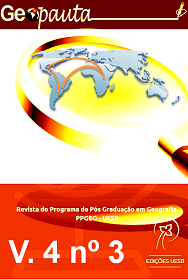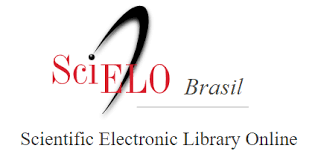The production of endogenous knowledge about Africa and African women.
DOI:
https://doi.org/10.22481/rg.v4i3.7483Keywords:
Gender, Africa, Endogenous knowledge.Abstract
This article deals with endogenous knowledge about Africa and African women. Gender studies were used to demonstrate the social gears that over the centuries have operated to conform women to the condition of use according to sex and reduced the invisibility of the ways of life and trajectories of non-Western women. It is understood that it is no longer possible to speak of "the woman", but of "the women", because, in contemporary times, these women are no longer imprisoned in a single narrative, that of the woman of the West. A need to build a more Afrocentric narrative focused on African women and the need to formulate the specificity of the trajectory of Angolan women as opposed to Western ones.
Downloads
References
Albano, R- (2006). Studies on gender throughout history, Piaui: PPGED- UFPI, 2006
Araújo, C.; Scalon, C. ( ORGs) (2005)- Gender, family and work in Brazil, RJ: Editora FGV,
Beauvoir, S. (1980).The second sex. Vol.I and 2, Rio de Janeiro: Nova Fronteira,
Carvalho, P.(2014) “Racism as a theory and social practice” - in SERRA (ORG.) What is Racism? SOCIAL SCIENCES NOTEBOOKS, Lisbon, Escolar Editora, 2014
Casagrande, S. L.; Carvalho, M. G.; Leszczynski, S. A.;Schwartz J. (2004) Women and science; pioneers in the natural sciences. Gender and Technology Notebooks, v.1, n.1, p.3-14. Curitiba, Utfpr.
Christo, C. A. (2010) Brands of Baton. Second section: Reflections on culture and everything else adapted from Revista Caros Amigos (2001). Available in: (https://secundo.wordpress.com/ 2010/11/21/marcas-de-batom-parte-i/) Accessed in september 2020.
Costa, C.M.;Fiabani, A. (2012) Angolan agriculture and quilombola horticulture. Annals, International Education and Research Hall, Extension, V.4, N.2, Bajé 2012 , publisher in https://periodicos.unipampa.edu.br/index.php/SIEPE/article/view/60114
Diop, C. A. (1979). Nations négres and culture. De la Ántiquité nègre égyptienne aux problèmes culturels de l´afrique noire d´aujourd´hui, Paris: Présence Africaine,
Diop, C. A. (1959). L'unité culturelle de l'Afrique noire, Paris: Editora Presence Africaine,
Ducados, H. (2004). Angolan women after the end of the conflict. Available at http://cef03gama5a.blogspot.com/2008/10/mulher-angolana-aps-o-final-do-conflito.html
Ela, J. M. (2013). Restoring history to African societies / promoting social sciences in Black Africa, Luanda: Ediçoes Mulemba; Mangualde: Editions Pegado, 2013
Ferreira, R. F.(2004). Afrodescedente / Identity under construction, São Paulo: Educ; RJ: Pallas.
Fontana, B, Ostermann, H.(2010), (Orgs). Language, Gender and sexuality / Translated classics, S.P: Editorial Parable,
Foucault, M. (2002). In defense of society. Course at College de France, SP: Martins Fontes,
Foucault, M. (1996). The order of discourse, São Paulo, Loyola,
Foucault, M. (1981). The words and the things, São Paulo, Martins Fontes,
Foucault, M.(1979). Microphysics of Power, Rio de Janeiro, Editora Graal.
Freud, S. [1923] The Ego and the ID in Complete Works, V.XIX, Brazilian Standard Edition, RJ: Editora Imago, 1976
Kajibanga, V. (2008). Endogenous knowledge, social sciences and challenges of African countries, in Endogenous knowledge and new epistemologies in Africa, Revista Angolana de Sociologia, Mangualde: Edições Pegado,
King, M.L.(2015) Discurso na cidade de Alabama- in SELMA / Uma luta pela igualdade (Filme), NY: David Lowo HD,
Louro, J.; Peligre, J. Goellner, S. (2012)(Orgs)- Body, Gender and Sexuality / A Contemplative Debate in Education, Petrópolis, Rio de Janeiro, Vozes.
Machado, R. (2006). Foucault Science and knowledge, Rio de Janeiro, Jorge Zahar,
Mazariegos, D. (2011). Gender anthropology or feminist anthropology. Mulemba Revista Angolana de Ciências Sociais, V. 1 nº 2 Luanda, FCS/UAN,
Meyer, D.E. (2005). Gender and education: theory and politics in body, gender and sexuality: a contemporary debate in education in: Louro G. L., Felipe J. Goellner S. V. (org) Body, gender and sexuality: a contemporary debate in education. 8 ed- Petrópolis, RJ: Vozes,
Ngkuka, P. Steiner, A. (2018). The importance of gender equality. In Valor Econômico, Luanda, Março, 2018
Oyěwùmí, O. (2011). Gender epistemologies in Africa: gendering traditions, spaces, social institutions and identities. New York, Palgrave Mcmillan,
Rebelo, T.R. (2013). Gender balance in peace operations. Revista de studies femininos, vol.21, Florianopolis, September / December,
Rodrigues, A.; Assmar, E.; Jablonsky, B. (2002) Prejudice, Stereotypes and Discrimination in: Social Psychology, RJ: Vozes,
Rousseau, J. (1973). Emílio ou da Educação. São Paulo. European Book Diffusion.
Tchikanha, M.C. (2011). Women, work and agriculture: the case of the central plateau in Angola, 2021 Available at Repositorio.utl.pt/handle/104005/4474. Accessed on 20/09/2020
Santos, C. (2015). Gender reading on international security studies. Conjuntura global, Vol.4, n.2. Curitiba, p.171-184
Santos, V. I. (2010). The situation of women in Angola: a critical look. Methodist portal of scientific and academic journals. Available in metodista.br/ magazines -ims / idem.phpMa / article / 2010. Accessed on 19/09/2020.
Sousa, N. S. (1983). Becoming Black: the vicissitudes of the identity of Brazilian blacks in social ascension, RJ: Graal Edition,
Veloso, H. (2015). Affectivity, Identity and Gender: the Freudian perspective. Lucére- Academic Magazine of the Catholic University of Angola, Luanda: Leya, S.A,
Veloso, H. (2014). Ethics as a management tool. Luanda,
Editions Mulemba; Mangualde: Editions Pegado,
Zau, F. (2017). Women as a factor of democratization and development in the world / 2017. http://jornaldeangola.sapo.ao/opiniao/artigos/a_mulher_como_factor_de_democratizacao_e_desenvolvimento_no_mundo acesso in 20/09/2020.
Downloads
Published
How to Cite
Issue
Section
License
Copyright (c) 2020 Geopauta

This work is licensed under a Creative Commons Attribution 4.0 International License.
Dos Direitos Autorais
Os autores mantêm os direitos autorais de forma irrestrita e concedem à Geopauta a primeira publicação com o trabalho simultaneamente licenciado em CC BY, que permite que outros compartilhem com reconhecimento da autoria de cada autor na publicação inicial nesta revista.
Propriedade Intelectual e Termos de uso
A Geopauta adota a política de Acesso Livre em Conformidade com o Acesso Aberto- OAC recomendado pelo DOAJ e em conformidade com os Critérios SciELO, sob uma licença Creative Commons CC By Attribution 4.0 International License, permitindo acesso gratuito imediato ao trabalho e permitindo que qualquer usuário leia, baixe, copie, distribua, imprima, pesquise ou vincule aos textos completos dos artigos, rastreie-os para indexação, passe-os como dados para software ou use-os para qualquer outra finalidade legal.
A Geopauta atribui a licença CC BY. onde é permitido sem restrições:
Compartilhar — copiar e redistribuir o material em qualquer suporte ou formato para qualquer fim, mesmo que comercial. desde que lhe atribuam o devido crédito pela criação original.
Adaptar — remixar, transformar, e criar a partir do material para qualquer fim, mesmo que comercial desde que lhe atribuam o devido crédito pela criação original.













